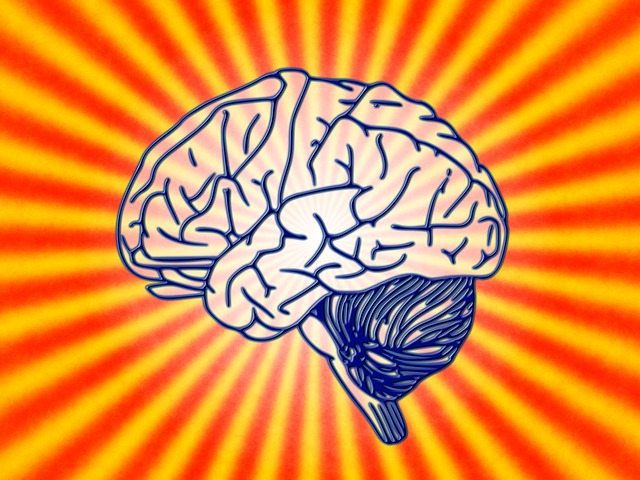Meditation is an excellent way to decompress from a hectic daily life. Let’s paint a picture of what your typical morning looks like.
You open your eyes and slowly begin to wake your body out of a nice, warm bed. Already, your brain is firing thoughts about where you need to be. Then, you worry about when you need to be there. And, you even begin to consider much “stuff” you need to get done today.
As your day progresses, you experience several distractions. And, each interruption requires you to discipline yourself to stay on task. This is not always easy to do. Tha’s especially if you work for with others and you hear ringing phones, loud co-workers, meetings, email, conference calls…whew!
This constant barrage of information overload and distractions takes its toll on our brains and overall mental and physical health.
People who practice meditation often say that it’s the answer to these and other problems. They swear that meditation keeps them healthy both mentally and physically.
Does it? What do scientists and doctors have to say?
Let’s first delve into some basics on meditation.
What is meditation?
 First, it’s important to discuss what meditation is and is not.
First, it’s important to discuss what meditation is and is not.
Meditation is simply mindfulness and being present. It is the observance of your thoughts. In addition, it is being attuned to your breath, mind, and body. It is an ongoing process and practice that can be learned by nearly everyone.
Meditation is not the elimination of your thoughts. It is not a religious practice (although you can certainly meditate on your God, religious texts, etc.). It is not something that is going to feel comfortable and natural the first time – in other words, there are no naturally-talented meditators.
What Science is Saying
Scientists train to remain objective and base their findings on evidence. Thus, they monitor experiments and studies are closely and record data precisely. It has to be this way for a scientist’s findings and work to be taken seriously by his or her peers.
So, when numerous scientific studies (over 200 in 2013) are concluding that there are many positive benefits to meditation, it’s a big deal.
And, when the American Medical Association – the largest association of physicians in the United States – says that meditation is a beneficial practice, it’s a big deal.
Harvard scientists – meditation can shape your brain
Neuroscientists at Harvard University conducted a study that shows the brain can be physically changed with meditative practice.
In the study, Anatomical magnetic resonance images (MRI) were taken of 16 healthy participants before and after they underwent an 8-week Mindfulness-Based Stress Reduction (MBSR) program. This program is one of the most widely-practiced by those seeking better mental functioning and emotional control.
After the program was complete, a second set of MRI scans were taken. The images showed increased gray matter concentration in 4 regions of the brain, including the hippocampus and cerebellum, responsible for learning and memory processes and emotional regulation!
The participants reported improved mental processing, emotional balance, and other benefits.
Brita Holzel, the lead author of the student notes:
“It is fascinating to see the brain’s plasticity and that, by practicing meditation; we can play an active role in changing the brain and can increase our well-being and quality of life.”
According to Sara Lazar, Ph.D, author and scientist involved in the study:
“This study demonstrates that changes in the brain structure may underlie some of these reported improvements and that people are not just feeling better because they are spending time relaxing.”
Can meditation help change the brain? Yes!
American Heart Association – Meditation can reduce heart attack, stroke, and death
According to the research contained within an American Heart Association (AMA) journal, African Americans with heart disease that practiced Transcendental Meditation (TM) were 48% less likely to experience a heart attack, stroke, or die than a group that just exercised and dieted.
201 people were split into two groups – one practiced the technique of TM and one attended a physical education class.
The TM group sat, eyes closed for 20 minutes twice daily practicing the technique, allowing deep rest of their minds and bodies while remaining alert.
Researchers advised the exercise group to spend at least 20 minutes a day at home exercising, eating well, and relaxing.
Researchers found that those in the TM group had reduced blood pressure and reduced smoking and other adverse habits, as well.
Can meditation help the heart? Yes!
MIT and Harvard neuroscientists: Meditation practice can reduce distractions and relieve pain
Neuroscientists from the Massachusetts Institute of Technology (MIT) and Harvard University split a group of 12 subjects into two groups – a group of 6 that practiced Mindfulness-based stress reduction (MBSR) and 6 that did not meditate.
Once a day, the MBSR group listened to a 45-minute program that guided them through the lessons. These lessons consisted of mindfulness meditations, body awareness, and simple yoga.
Researchers conducted two brain scans of the subjects during the study. They performed these three weeks in and at the end of eight weeks.
There were two amazing findings:
First, the meditation group had greater changes in the amplitude (size) of the Alpha brainwaves than the group that did not meditate. Essentially, the meditators had a greater improvement in focus and bodily awareness. The meditation group also expressed that they experienced less stress and reactive behavior.
Second, individuals that experience chronic pain may benefit from meditative practice. Findings from this study indicate that chronic pain sufferers may be able to lower their pain signals. According to Catherine Kerr, a professor at Harvard Medical School and the lead author of the study:
“They learn to be aware of where their attention is focused and not get stuck on the painful area.”
Can meditation reduce distractions and ease pain? Yes!
Conclusion
The fact that neuroscientists, doctors, and others within the scientific and medical community and now validating meditation through rigorous studies is a phenomenal development.
The fact that we can literally reshape our brain through meditation is incredible.
Meditation can reduce or eliminate our chances for heart disease, stroke, and other heart and brain-related ailments.
Moreover, meditation can result in better mental functioning and emotional stability.
Most importantly, meditation can help us find peace within ourselves.




















